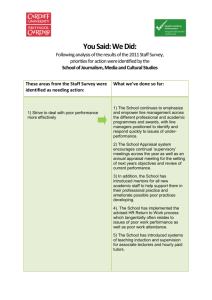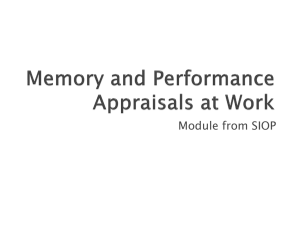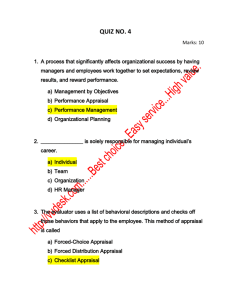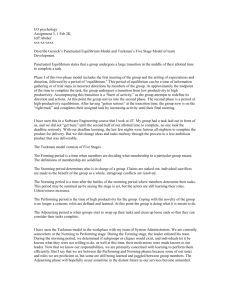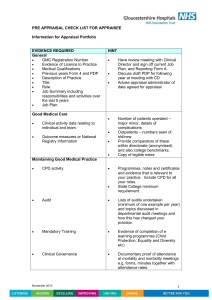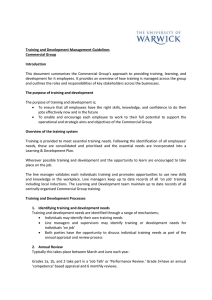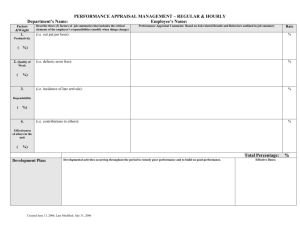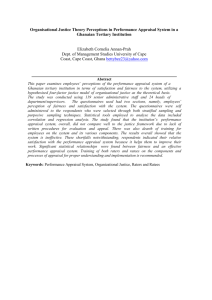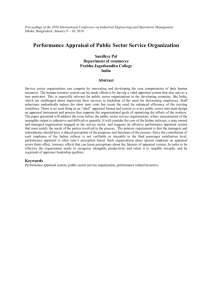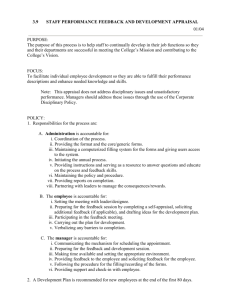The_Business_Upp_Int_4
advertisement
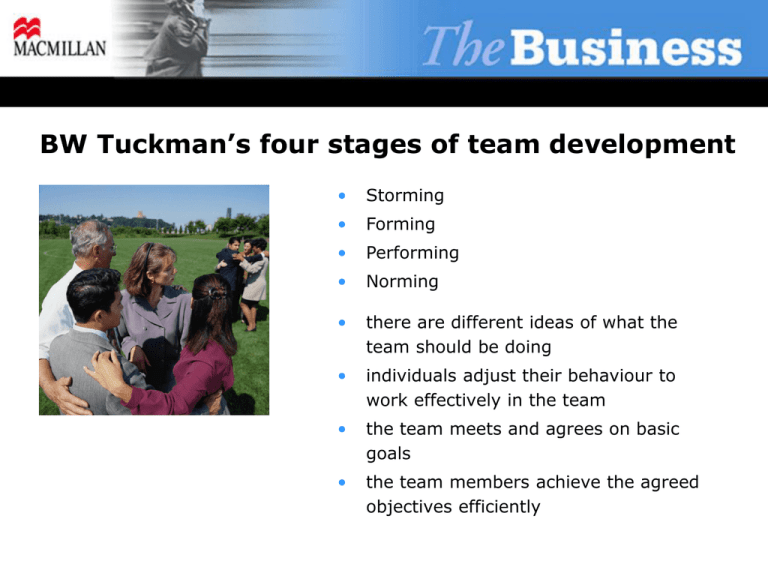
BW Tuckman’s four stages of team development • Storming • Forming • Performing • Norming • there are different ideas of what the team should be doing • individuals adjust their behaviour to work effectively in the team • the team meets and agrees on basic goals • the team members achieve the agreed objectives efficiently BW Tuckman’s four stages of team development 1 Forming: the team meets and agrees on basic goals 2 Storming: there are different ideas of what the team should be doing 3 Norming: individuals adjust their behaviour to work effectively in the team 4 Performing: the team members achieve the agreed objectives efficiently Team-building activities Roles in projects the maverick the leader This character does things their own way. They may be effective, but they’re difficult to control. This person has a natural ability to encourage others and take a project though to success. the bully This person imposes their personality on others, making other people feel bad in the workplace. the workaholic This person doesn’t know when to stop, and they often believe the office would collapse without them. the team player This person has a natural ability to fit in. They make positive contributions and build good relationships. Your role in a project team checklist Are you creative and good at coming up with ideas? How good are you at taking responsibility for implementing decisions? How good are you at starting and completing tasks within a deadline? Do you like working in teams or do you prefer working on your own? How easy do you find it to take criticism of your ideas? How flexible are you? How easy do you find it to analyse a plan? How to manage difficult people Who are they potentially? Issues to consider: • Someone who reports to you • Communication style • Your boss • Source of conflict • A colleague • A supplier • Strategies for resolving conflict • A customer • Making time • How to be positive • Team roles Suggested answer to Writing 9 on page 53 of Student’s Book from TB page 58 Annual Appraisal Scheme Review Introduction An annual appraisal scheme was set up last year to improve staff motivation and communication within the company. We planned a review of the scheme after one year. Procedure Line managers ran appraisal interviews in December. Amongst other questions, staff were asked for their feedback on the scheme. Findings The feedback was mostly positive. The main criticisms of the scheme were that the interviews were too short (just 45 minutes) and that there was a lack of ‘objective measurement of performance’. Suggested answer to Writing 9 on page 53 of Student’s Book from TB page 58 continued Conclusions The appraisal interview scheme should be maintained but with some minor adjustments. Recommendations Run one-hour appraisal interviews this year, subject to: 1 the development of more objective performance indicators (F Berger to report back in January), and 2 the final approval of the Board of Directors Managing your manager What constitutes bad management in an international context? Poorly defined objectives Inadequate resources to achieve objectives Lack of constructive feedback Unavailability at times when input is needed Unwillingness to help when things go wrong Failure to appreciate cultural differences or issues Lack of flexibility Inconsistency Discussion: do you agree or disagree? A deadline is a deadline – it has to be met. As an employee, if you do not understand your boss’s instructions, you need to have this clarified. Men and women usually work best in mixed teams. Giving gifts is a useful way to show respect. Humour can help to develop good relationships in the work culture. Shouting should be avoided in the workplace. As a manager, it is not acceptable to employ your relatives.

